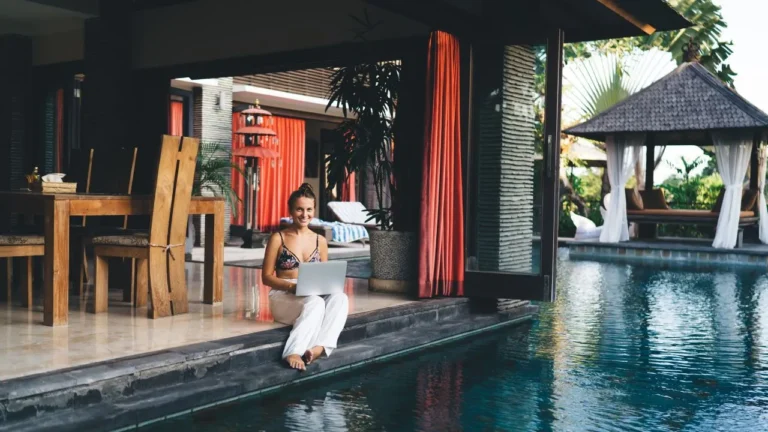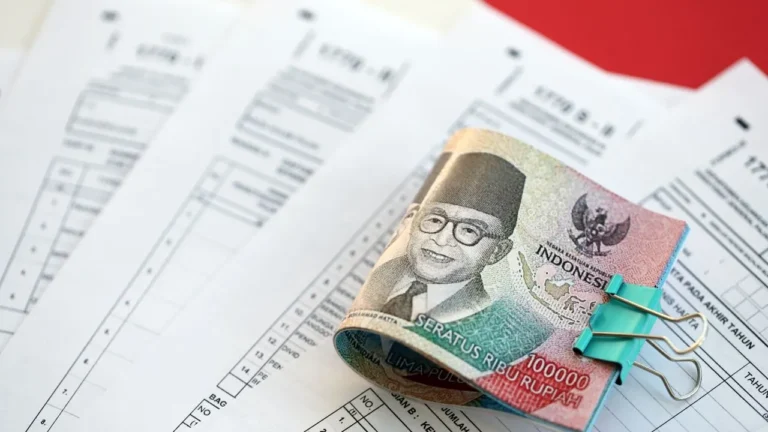Table of Contents
ToggleBali’s allure transcends its breathtaking landscapes and vibrant culture. For many, it whispers the promise of a dream property, a haven of tranquility nestled amidst emerald rice fields or overlooking the azure expanse of the Indian Ocean. But before embarking on this exciting journey, navigating Bali’s unique land ownership laws and regulations is crucial for a smooth and secure investment. This comprehensive guide demystifies the complexities of Balinese property, offering vital insights on leasehold and freehold rights, unraveling due diligence procedures when investing in Bali real estate, and illuminating hidden gems – ensuring your investment journey is not just rewarding, but also well-informed.
Understanding the Land Landscape: Leasehold vs. Freehold
Unlike many countries, foreigners cannot directly own land in Bali. However, despair not! Enter the Hak Pakai, a long-term leasehold right granting you the privilege of possessing and enjoying a property for up to 30 years, with renewable options stretching for generations. This practical solution offers benefits for both investors and the environment, ensuring responsible land use and safeguarding Bali’s natural beauty.
Choosing between Hak Pakai (leasehold) and Hak Milik (freehold) through nominee arrangements requires careful consideration of your long-term vision and budget. Here’s a breakdown to help you decide:
Leasehold (pros and cons)
- More affordable: Requires a smaller upfront investment compared to freehold.
- Renewable: Offers the security of extending your lease beyond the initial 30 years, often with preferential renewal rates depending on the negotiation.
- Lower maintenance burden: Landowner typically handles major maintenance and repairs.
- No direct land ownership: You don’t own the land itself or the property itself, but rather the right to use and enjoy it.
- Potential rent increases: Leases may have clauses allowing for rent adjustments over time.
- Inheritance limitations: Leasehold rights are typically not inheritable in the same way as freehold property.
Freehold (HGB or Hak Pakai)
- Full ownership: You legally “own” the land through a company
- Higher resale value: Offers greater potential for capital appreciation compared to leasehold.
- Inheritance potential: Can be passed down to heirs under specific legal conditions.
- Greater control: Provides more freedom in terms of development and renovations
- Possibility to leverage and get a mortgage to develop another property
- Higher upfront cost: Requires a significantly larger investment
- Maintenance responsibility: You are responsible for all maintenance and repairs on the land and property.
Nuances and Considerations
Beyond the basic framework, each option presents unique nuances to consider. For example, leasehold properties may have restrictions on certain types of construction or business activities. Conversely, nominee arrangements can be complex, requiring careful selection of a trustworthy trustee and ensuring clear legal documentation.
Case Study: Finding Your Perfect Fit
Imagine Sarah, a yoga enthusiast planning to open a retreat center in Bali. After careful research, she decides on a beautiful villa on freehold. She negotiates favorable terms and understands the potential for rent increases. With expert legal guidance, Sarah secures her dream property and takes the next step in investing in Bali real estate by using her first property as mortgage collateral to acquire a second one.
After 4 years Sarah can now double her investment each time she refunds the mortgage by renting on AirBnb her properties.
Make navigating real estate in Indonesia easy
Save time and money by letting ILA’s team of experts guide your real estate journey in Indonesia. We can help with due diligence, land title transfers, notary services, contract drafting and reviewing, building permits, various licences and more.
Find more information about our broad range of real estate services, or reach out today for a free consultation.
Understanding Due Diligence for Investing in Bali Real Estate

Due diligence when you investing in Bali real estate or Indonesia is your shield against hidden pitfalls. Here are some key steps to ensure a smooth and secure investment:
- Land Title Verification: Engage a reputable lawyer to verify the property’s land title, ensuring it’s free of encumbrances and held by a legitimate owner.
- Zoning Regulations: Understand the zoning of the land to avoid restrictions on your desired use of the property.
- Building Permits and Licenses: Confirm if necessary permits and licenses for construction or renovation exist, avoiding future complications.
- Environmental Considerations: Research potential environmental risks like flooding, landslides, or proximity to hazardous materials.
- Structural Integrity: Conduct thorough inspections to assess the property’s structural soundness and potential repair needs.
- Road access: Check if you have full right to access to your property
Read also: Things to Know Before Investing in a Property in Bali
Case Study: Paradise Lost – The Price of Skipped Due Diligence in Bali when buying a property
The Dream: John, a globetrotting entrepreneur, stumbled upon a breathtaking cliffside villa in Bali. Lush greenery tumbled down to the turquoise ocean, and the whispering palms promised endless sunsets. He envisioned yoga retreats, art workshops, and a life dipped in island serenity. The price was a steal, the seller persuasive, and John, blinded by his Bali dream, rushed headlong into a purchase.
Skipping Steps: In his haste, John neglected thorough due diligence. He skimmed the land title, ignored whispers of zoning issues, and didn’t bother with inspections. The seller’s charm and promises of “flexible regulations” were enough.
The Nightmare Begins: Soon after moving in, the cracks started to show. Construction on a neighboring property blocked the ocean view, violating zoning regulations. Local authorities halted work, citing John’s lack of permits. His dream retreats became a legal nightmare.
Hidden Costs: Inspections revealed structural issues, requiring costly repairs. The “flexible regulations” turned out to be costly bribes, draining John’s finances. The seemingly affordable price tag ballooned, leaving him with a property he couldn’t use and a mountain of debt.
Lessons Learned for not doing a due diligence in Bali before investing a property:
John’s Bali dream turned into a cautionary tale. His eagerness to own a piece of paradise overshadowed the importance of due diligence. His mistakes cost him dearly:
- Financial Loss: The hidden costs and legal fees spiraled, leaving John with a financial burden.
- Lost Time and Opportunity: Years were spent battling legal issues and repairs, stalling his business plans.
- Emotional Toll: The stress and disappointment chipped away at John’s initial excitement, leaving him disillusioned.
The Don’ts of Due Diligence:
- Don’t rush: Take your time to research, compare options, and consult with experts.
- Don’t ignore red flags: Be wary of seemingly “too good to be true” deals and discrepancies in information.
- Don’t skip inspections: Invest in thorough structural, environmental, and legal assessments.
- Don’t rely solely on verbal assurances: Get everything in writing, from contracts to permits.
The Takeaway:
A thorough due diligence process might feel like a detour, but it’s the paved road to a secure and fulfilling Bali investment. Remember, paradise is worth protecting, and due diligence is the lock on your dream property. Don’t let your Bali story become a cautionary tale – invest the time and resources to make sure your island haven is built on a foundation of knowledge, not sandcastles of hasty decisions.
This case study highlights the importance of due diligence and serves as a cautionary tale for anyone considering a property purchase in Bali. Remember, due diligence is not just about paperwork, it’s about protecting your investment and ensuring your dream doesn’t turn into a nightmare.
Read also: How To Buy A Property In Bali: What Is the Most Tax Efficient?
Building Bridges: Cultural Sensitivity and Local Knowledge
Bali’s rich culture and customs are integral to its charm. Approaching the property buying process with respect and sensitivity will go a long way. Open communication, a willingness to learn, and building relationships with local communities and authorities are key to a smooth and successful experience. Remember, trust and understanding are often valued more highly than legal contracts in Balinese culture.
Additional Resources and Strategies for Investing in Bali Real Estate
- Engage a Reputable Real Estate Agent: Partner with a trustworthy and experienced agent specializing in foreign property purchases in Bali. Their local knowledge and expertise can navigate the complexities and negotiate on your behalf. A buyer agent or an investment or legal advisor like ILA can accompany you to navigate the due diligence process to buy a property in Indonesia and Bali.
- Consider a Pre-purchase Inspection: Invest in a comprehensive inspection by a qualified surveyor or engineer to uncover any potential issues with the property’s structure, plumbing, electrical systems, or environmental hazards.
- Understand Insurance Options: Research and secure appropriate insurance coverage for your property, including fire, theft, and natural disasters.
- Learn Bahasa Indonesia: Basic Indonesian language skills will allow you to communicate effectively with locals, build trust, and avoid misunderstandings.
- Embrace the Journey: Approaching the property buying process with patience, flexibility, and a willingness to embrace the unique rhythms of Bali will ensure a more rewarding and enjoyable experience.
Unveiling the Paradise Within Navigating Bali’s property landscape may seem daunting at first, but with careful planning, informed decisions, and expert guidance, it can be a transformative and fulfilling journey. By understanding the intricacies of leasehold and freehold options, conducting thorough due diligence, and respecting local customs, you can unlock the door to your perfect Balinese haven. Remember, knowledge is your key, and cultural sensitivity your passport to paradise. Embark on this adventure with open eyes and a curious mind, and you’ll discover that owning a piece of Bali is much more than just an investment; it’s a gateway to a vibrant culture, a breathtaking landscape, and a life less ordinary.























